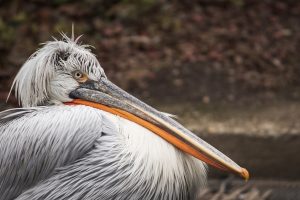- Free Initial Consultation: (954) 761-3641 Tap Here To Call Us
Suing Disney for Bird Attack: Wild Animals and Florida Property Owner Duty
A woman is suing Disney World in Orlando, alleging she suffered a traumatic brain injury when a wild, migratory bird suddenly attacked her – a danger about which she says the theme park failed to warn.

What duty – if any – do Florida theme parks and other property owners have to guests? The answer is under state premises liability law and precedent, it falls on a spectrum, with relevant factors including:
- The injured person’s purpose for being on the site;
- The injured person’s age/degree of understanding of danger;
- The nature of the hazardous condition and whether it was open and obvious and whether it was known or foreseeable by the owner.
Business property owners who invite members of the public onsite for the financial gain of said business owe the greatest degree of care – to regularly inspect for dangers and to adequately warn guests of identified risks that aren’t blatantly obvious.
With respect to animals, it will depend on whether the animal is a pet, livestock or wild.
Animal Attacks and Premises Liability
For example, zoos that house wild animals like tigers and bears as a regular feature for guests to observe have a duty to ensure those animals don’t pose an unreasonable threat to patrons AND that patrons are adequately warned against actions that could put them at serious risk.
Property owners are liable too for pets and often livestock that cause injury to guests. Most animal-related injury claims involve domestic dogs.
Liability for the actions of wild animals on site, however, is going to be a harder sell to Florida courts. (This is especially true if the property in question was free and open to the public.) However, there are all kinds of exceptions.
Still, Fort Lauderdale personal injury lawyers know there have been some successful cases ending in verdict or settlement involving some wild animals, such alligators and bears, particularly when the property owner failed to prevent it from becoming a nuisance or warn guests of its known or foreseeable presence. This could mean something as simple as campground owners posting signs bear warning signs or owners of a hotel situated near a body of fresh or brackish water noting guests should watch for alligators.
These warnings are particularly important at destination sites, where people frequently travel from out-of-town and may not be familiar with the proliferation and danger of Florida’s apex predators.
You may recall the horrifying incident a few years ago in which a two-year-old boy splashing along a freshwater shoreline was dragged into the water by an alligator. His parents nearby were unable to save him. In that case, the parents did not sue Disney – but only because Disney quickly and quietly settled with them out-of-court, negating the need for litigation. The theme park knew not only would such a case be horrible publicity, there was evidence staffers knew gators were being fed and hundreds of large alligators had been removed in the years just prior.
So What About the Disney Bird Attack?
In Dixon v. Disney, plaintiff reveals she was staying at the Polynesian Resort when a large, seasonal nesting bird attacked. Plaintiff alleges Disney knew about the bird and was aware that it posed a threat to guests, but didn’t warn of it.
The impact of the bird striking her head was reportedly, according to her injury lawyer, akin to being struck with a baseball bat. Plaintiff said she was given a false sense of security about her own safety while on the dock where the attack occurred. Call Fort Lauderdale Injury Attorney Richard Ansara at (954) 761-4011. Serving Broward, Miami-Dade and Palm Beach counties.
Additional Resources:
Woman suing Disney World claims she suffered a ‘traumatic brain injury’ after being attacked by a bird, May 30, 2019, 10 News













